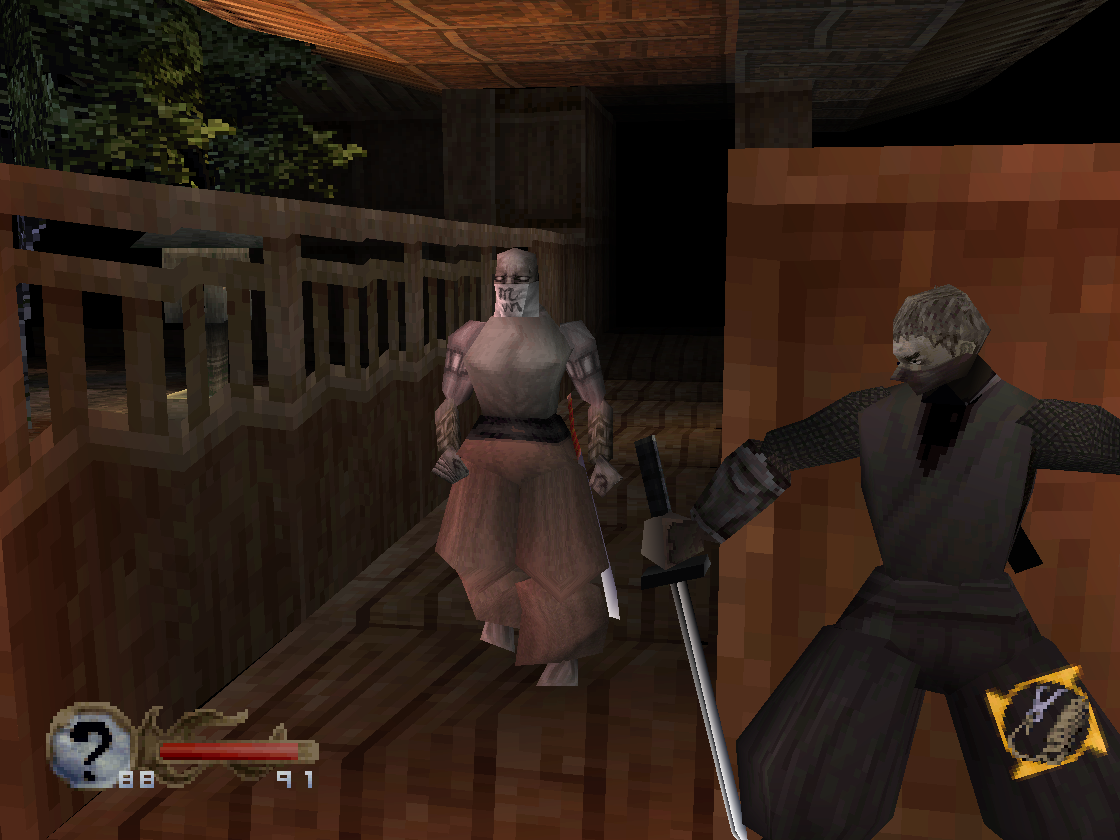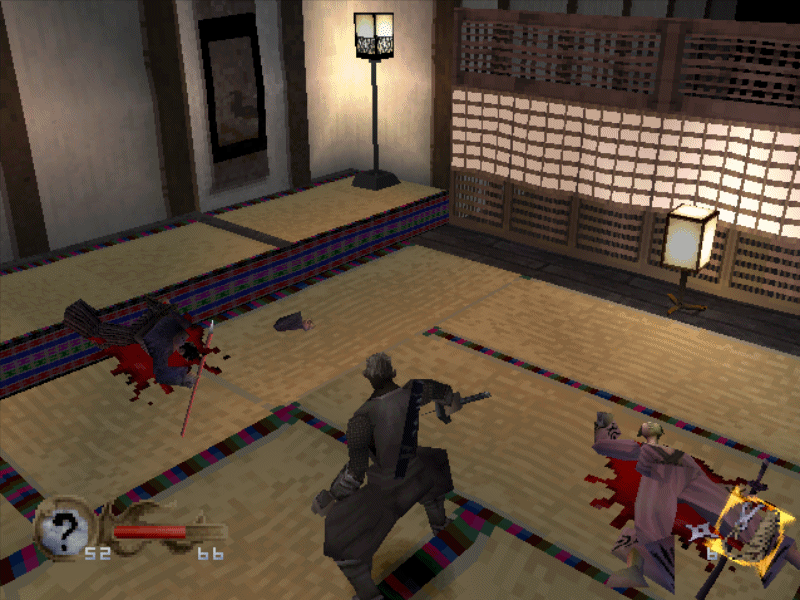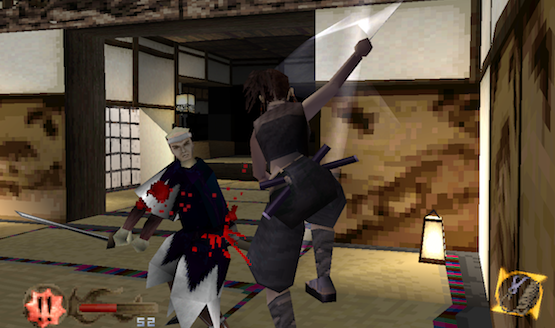The way of the ninja is filled with danger and experienced from the shadows. Sure, ninja are undeniably cool, mysterious and deadly, but it’s a hard lifestyle. It turns out that playing one is no easy task either. Tenchu: Stealth Assassins was released 20 years ago on February 26, 1998 in Japan, and it still continues to teach me lessons in patience and tactics to this day. It was the first real attempt at a 3D stealth game for consoles, coming out several months before Metal Gear Solid, and its approach to the genre spawned a string of good games. The first installment was able to show players players and developers a new bag of tricks, and there are elements of game design that are still being used to this day.
Many video games give players the power to charge into dangerous situations head-on, granting this feeling of power or invincibility and allowing caution to be thrown to the wind. Tenchu‘s Rikimaru is a trained stealth assassin, not a ninja dog, but no one agent can take on an entire army without being overpowered (although Ryu Hayabusa might disagree). Instead, ninjas dismantle groups and attack targets carefully without detection. Tenchu was one of the first titles to focus heavily on stealth and that made it quite different for the time. Rather than simply having a shadow meter or relying on line of sight alone, developer Acquire used symbols and a number system to make the player cautious. It was beneficial to stick to the rooftops, strike from above or below, remain unseen and be patient. Tricks of the trade and items can be ignored, but things like poisoned rice balls and shurikens are imperative for taking down certain enemies efficiently. Tenchu would allow the player to be a lowly thug, but expected much more of those who wanted to follow the path.
Story elements are simple at first: feudal Japan, assassin for a Lord, and greedy womanizing merchants. All are a lot of fun for a martial arts film fan such as I, and then the supernatural begins to occur. These scenes are done well and help take the game from a pseudo-period piece to something creepy by raising the stakes and adding a bit of mystery. The plot seems like it is loosely connected at first but comes together nicely, making each of the ten missions easy to do in any order after beating the game once. Having two assassins with different styles was a nice surprise. Although I liked Ayame with her speed and snark, I mastered my hunting grounds with Rikimaru. I did eventually beat the game as her though, and thought it was cool that some of the bosses reacted differently to their executioner’s gender.

Seeing the opening cinematic for Tenchu in my local Babbages sold me on buying the game. The use of water effects, falling leaves, and symmetrical plain environments combined with a black and white filter made it look like art to my young mind. The game also has an incredible soundtrack all the way through, one that conveys the mood for each stage and changes its sound, striking multiple chords of its exotic spectrum. It was unique for the time and possibly still one of the best on the PlayStation. There was one other thing that drew my attention though, and that is the gruesome level of blood and violence. This is a game about death, and it may look horribly dated and almost like comical gore now, but back then it was a glorious experience.
“The ninja Rikimaru lies broken, a shadow in life, in death a failure.”
The game is difficult, especially at first when getting used to movements and how to make use of equipment and environments. Dying was always a pain though, because it sent the player back to the beginning of the stage and took away whatever items that had been brought along for the mission. A few untimely deaths will force the player to complete their missions with even less assistance, and this is coming from a game that already requires skill. Multiple attempts will be made, and replaying many of the levels can be a pain without knowing where to go or dealing with unskippable cutscenes. That said, achieving the ranking of grandmaster can make it worth it for those invested, as each stage done in this fashion offers a cool secret item that makes the game easier upon unlocking it. I spent so much time trying to get the highest rank on each stage, until I learned about the available cheats and that there was even a debug menu, which quickly made everything ridiculous.

It’s hard to believe that a game I consider to be such a masterpiece started off as a much different and smaller project, but that also may have lead to some of its problems. For a pair of ninja, the two characters control like small tanks, and this is because the game came out before most titles on the PS1 were taking advantage of the DualShock controller. This also caused a ton of issues with the camera, which was responsible for so many of my messy assassination attempts—even the ones that were mostly my fault. The draw distance was pitiful, and the mass of darkness was used to hide technological limitations. However, those things wind up being a positive in a way. They help add to the tone of staying hidden, operating in the dark, and focusing on immediate targets. There’s also the ludicrous voice acting that sounds thrown together at the last minute. I still remember a ton of the lines though, and it’s reminiscent of cheesy English dubs from old kung fu movies. It’s definitely in the so-bad-it’s-good territory.
It’s sad that the game is so clunky to play now, and shows the 20 years of age proudly, because most that haven’t had a previous experience with Tenchu will likely not enjoy their time with the PS1 classic. There have been teases of a new entry in the series by FromSoftware, and while I hope that is true, I think it needs to be a sequel or reboot. With so many games getting the remaster treatment as of late, I’m not sure Stealth Assassins is a good candidate no matter how much I love it. The title is more like a cherished relic that remains wrapped in shadows of the past for a reason. It’s old and worn from battle. Learn from the past, but do not resurrect it, no matter how much the original gave to those who played it.







